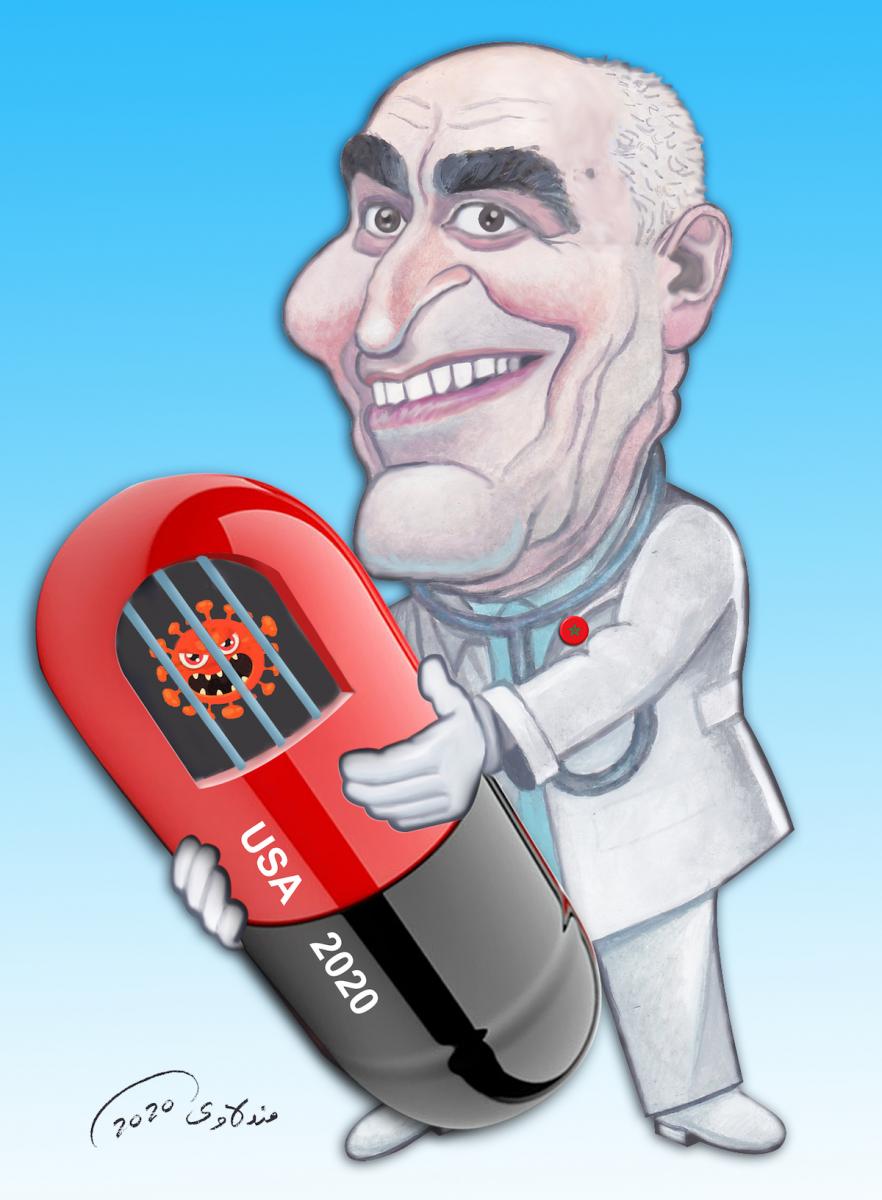
United States President Donald Trump has appointed Dr Moncef Slaoui, a Moroccon-born Belgiun-American expert in immunology and vaccinology, as the new chief of what President Trump calls Operation Warp Speed. He is tasked with guiding a group of medical professionals to formulate a vaccine to battle the COVID-19 pandemic, which has killed hundreds of thousands of people all over the world. In his announcement, Trump introduced Slaoui as a “world-known immunologist” and "one of the most respected men in the world in the production and formulation of vaccines". A 2016 profile by Fortune magazine, which included him in its list of top 50 greatest leaders in the world or his work in under-researched diseases common in the developing world, describes his journey from city of Agadir on the shores of the Atlantic Ocean in Morocco, to one of the world’s top immunologists.
Moncef Slaoui was born and bred in Agadir, Morocco. His father worked in the irrigation business and died when Slaoui was still a teenager, leaving Slaoui's mother to single-handedly raise him and his four siblings. Slaoui went through the Moroccan public school system until he obtained a baccalaureate from Mohamed V Secondary School in Casablanca. He left Morocco at 17 to study medicine in Europe and enrolled at the Free University of Brussels where he completed his BS and Masters degrees in biology. In 1983, Slaoui earned a PhD in Molecular Biology and Immunology from the same university and completed postdoctoral studies at Harvard Medical School and Tufts University School of Medicine, Boston. Slaoui’s impetus for vaccine development is a deeply personal one: His sister died from whooping cough, an immunisable disease, while they were growing up in Morocco.
1988, after consulting SmithKline-RIT for three years, Slaoui joined the company as a vaccine researcher. His career at GSK spanned 29 years, where he sat on its board of directors from May 2006 through March 2017. He was Chairman of Global Research and Development (R&D) from 2006 to 2014, where he led an overhaul of the company's pharmaceutical R&D and was also responsible for commercial pursuits such as new product launches and lifecycle management, resulting in a substantial improvement in productivity, with a late-stage pipeline comprising more than 30 Phase III programs and a totally redesigned discovery organization comprising 38 highly focused and accountable Discovery Performance Units. In his role as leader of the Franchise Commercial Operation, he spearheaded a deep transformation of GSK’s launch and commercial strategy capabilities, and while at GSK Biologicals, Dr. Slaoui engineered the development of a robust vaccines pipeline, including Rotarix to prevent infantile gastroenteritis, Synflorix to prevent Pneumococcal disease, and Cervarix to prevent cervical cancer. He was also involved in the development of a vaccine against Ebola. In 2015, he won European approval for the world’s first malaria vaccine, which could limit the spread of a disease that kills more than half a million people a year. Dr. Slaoui was also Chairman of GSK's vaccine division from 2009 until his retirement from the company in June 2017.
After his retirement from GSK, the drug maker joined Medicxi Life Sciences as a partner. He also took on a number of independent board positions, including chairman of the board of Galvani, a bioelectronics-focused company jointly owned by GSK and Verily life sciences, and independent board director of Moderna, Sutrovax and Artizan Biotechnology.
Faced with a formidable task as leader of "Operation Warp Speed”, Slaoui, who is now a venture capitalist, said that he had “recently seen early data from a clinical trial with a coronavirus vaccine, and these data made me feel even more confident that we will be able to deliver a few hundred million doses of vaccine” — enough to inoculate much of the United States — “by the end of 2020.” He did not identify which vaccine he was referring to, but Moderna, one of biotechnology companies that has an experimental coronavirus vaccine, where Slaoui served on the board, just entered Phase 2 of clinical trials to determine if it is effective. As the chairman of the Moderna board’s product development committee, Dr. Slaoui might have been privy to the early indications of tests of whether the company’s approach appeared promising, now that it is being injected into human subjects, according to the New York Times. Patient advocates have warned that Slaoui has "blatant conflicts of interest" because he sits on the board of multiple vaccine developers but Slaoui thas informed Moderna he plans to retire from its board and will divest himself of his $10 million in stock options in the pharmaceutical company.









